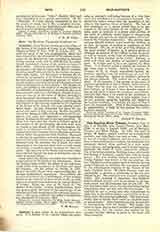

Jealousy is here taken to be synonymous with envy. It is defined to be a sorrow which one entertains at another’s well-being because of a view that one’s own excellence is in consequence lessened. Its distinctive malice comes from the opposition it implies to the supreme virtue of charity. The law of love constrains us to rejoice rather than to be distressed at the good fortune of our neighbor. Besides, such an attitude is a direct contradiction of the spirit of solidarity which ought to characterize the human race and, in an especial degree, the members of the Christian community. The envious man tortures himself without cause, morbidly holding, as he does, the success of another to constitute an evil for himself. The sin, in so far as it bids defiance to the great precept of charity, is in general grievous, although on account of the trifling matter involved, as well as because of the want of sufficient deliberation, it is often reputed to be venial. Jealousy is most evil when one repines at another’s spiritual good. It is then said to be a sin against the Holy Ghost. It is likewise called a capital sin because of the other vices it begets. Among its progeny St. Thomas (II—II, Q. xxxvi) enumerates hatred, detraction, rejoicing over the misfortunes of one’s fellow, and whispering. Regret at another’s success is not always jealousy. The motive has to be scrutinized. If, for instance, I feel sorrow at the news of another’s promotion or rise to wealth, either because I know that he does not deserve his accession of good fortune, or because I have founded reason to fear he will use it to injure me or others, my attitude, provided that there is no excess in my sentiment, is entirely rational. Then, too, it may happen that I do not, properly speaking, begrudge my neighbor his happier condition, but simply am grieved that I have not imitated him. Thus if the subject-matter be praiseworthy, I shall be not jealous but rather laudably emulous.
JOSEPH F. DELANY

